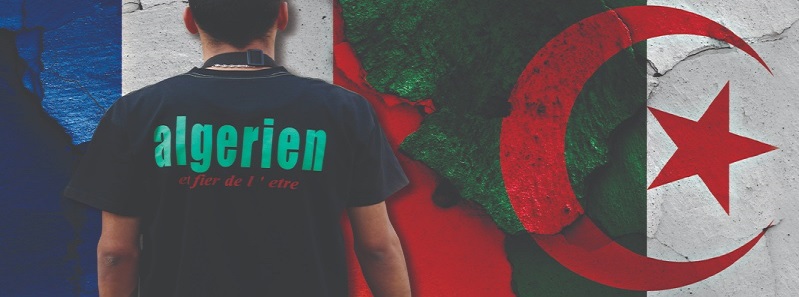
Jonathan Lewis introduces his new book, The Algerian War in French/Algerian Writing: Literary Sites of Memory.
The Algerian War of Independence (1954–62), which led to the birth of the Algerian nation and marked the end of the French Empire, remains a divisive topic in contemporary France. Characterized as a ‘war without a name’ for decades after its conclusion due to an overarching desire in France to suppress memories of this traumatic loss,[1] it was only officially recognized as a war by the French government in 1999. In the run-up to the last presidential election, the current French president Emmanuel Macron caused controversy when he presented a justification of colonialism with specific reference to France’s ‘civilizing mission’ in Algeria.[2] When he visited Algeria at the end of 2016, Macron had shifted his stance, classifying colonialism as a crime against humanity,[3] comments that were met with criticism from the right-wing candidate François Fillon and the far-right candidate Marine Le Pen.[4] More recently, in an article marking the anniversary of 17 October 1961, when a peaceful Algerian demonstration in central Paris was brutally crushed by the Parisian police force, the newspaper Libération evoked the simultaneous emergence and suppression of memories of this event, reflecting a broader difficulty in coming to terms with the Algerian War in France.[5]
While memories of the Algerian War have emerged slowly and problematically in the French political arena, authors of literary texts have been more inclined to deal with the complexities of remembering the French/Algerian past. Over the course of the 1980s, a generation of writers who held French nationality but whose parents’ generation fought for independence from France came to public prominence. This so-called Beur (French backslang of ‘Arabe’) generation has continued to publish works dealing with the Algerian War and memories of it to varying degrees. Such varied responses to representing the Algerian War reiterate the difficulty of constructing a ‘complete’ memory of the war, but this body of literature, thanks largely to the open-ended nature of literature itself, reminds us that the very nature of memory is that it is ephemeral, constantly fluctuating, impossible to pin down. French/Algerian writing also underlines the power of literature to resist state-sponsored attempts to construct singular, limited narratives of the past.
Dr Jonathan Lewis is a Lecturer in French and Francophone Studies at Bangor University. His research interests lie in francophone postcolonial literature, memory, and prisons and incarceration.
[1] See for example Benjamin Stora, La Gangrène et L’Oubli: la mémoire de la guerre d’Algérie, 2nd edn (Paris: La Découverte, 1998), p. 8; and John Talbott, The War without a Name: France in Algeria, 1954–1962 (London: Faber And Faber, 1981).
[2] Étienne Gernelle and Saïd Mahrane, ‘Emmanuel Macron: “La Révolution française est née d’un ferment libéral”’, Le Point, 22 November 2016.
[3] ‘En Algérie, Emmanuel Macron qualifie la colonisation française de “crime contre l’humanité”’, Libération, 15 February 2017.
[4] ‘Après les propos de Macron, la colonisation s’invite dans la présidentielle’, Le Point, 16 February 2017.
[5] Comité de vigilance face aux usages publics de l’histoire, ’17 octobre 1961: le déni d’une histoire’, Libération, 17 October 2018.


